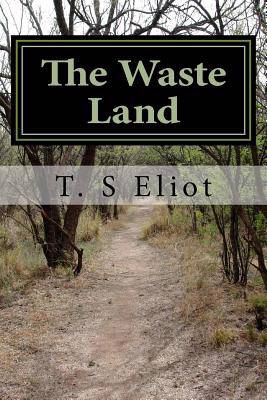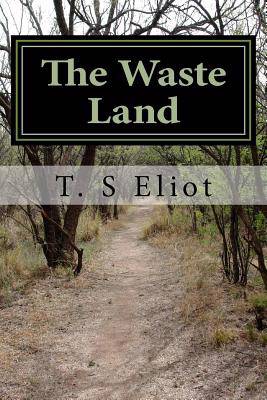
- Afhalen na 1 uur in een winkel met voorraad
- Gratis thuislevering in België vanaf € 30
- Ruim aanbod met 7 miljoen producten
- Afhalen na 1 uur in een winkel met voorraad
- Gratis thuislevering in België vanaf € 30
- Ruim aanbod met 7 miljoen producten
Zoeken
Omschrijving
The first section of The Waste Land takes its title from a line in the Anglican burial service. It is made up of four vignettes, each seemingly from the perspective of a different speaker. The first is an autobiographical snippet from the childhood of an aristocratic woman, in which she recalls sledding and claims that she is German, not Russian (this would be important if the woman is meant to be a member of the recently defeated Austrian imperial family). The woman mixes a meditation on the seasons with remarks on the barren state of her current existence ("I read, much of the night, and go south in the winter"). The second section is a prophetic, apocalyptic invitation to journey into a desert waste, where the speaker will show the reader "something different from either / Your shadow at morning striding behind you / Or your shadow at evening rising to meet you; / [He] will show you fear in a handful of dust" (Evelyn Waugh took the title for one of his best-known novels from these lines).
Specificaties
Betrokkenen
- Auteur(s):
- Uitgeverij:
Inhoud
- Aantal bladzijden:
- 24
- Taal:
- Engels
Eigenschappen
- Productcode (EAN):
- 9781500216481
- Verschijningsdatum:
- 1/06/1922
- Uitvoering:
- Paperback
- Formaat:
- Trade paperback (VS)
- Afmetingen:
- 152 mm x 229 mm
- Gewicht:
- 45 g

Alleen bij Standaard Boekhandel
+ 49 punten op je klantenkaart van Standaard Boekhandel
Beoordelingen
We publiceren alleen reviews die voldoen aan de voorwaarden voor reviews. Bekijk onze voorwaarden voor reviews.











